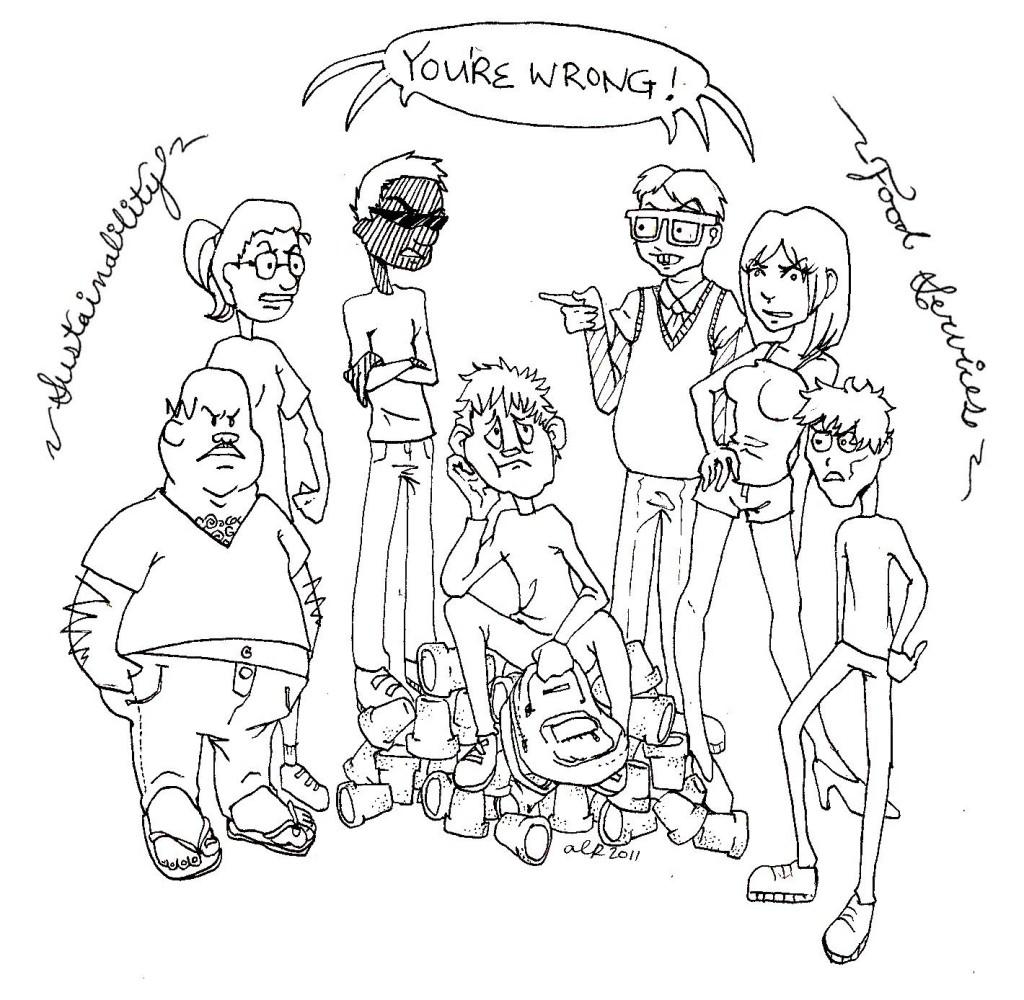The cafeteria, Basement Café and Crow’s Nest on campus provide stressed-out Diablo Valley College students and faculty places to purchase a meal or a snack, allowing a chance to refuel between classes.
It is apparent that these dining areas are going through a rocky transition from using polystyrene (also known as Styrofoam) to more environmentally sustainable “to-go” containers, and customers are paying the price.
Whether or not patrons are aware of the change, Food Services recently increased prices in light of the mandated switch. While the prices have been raised, communication with students about the changes has been stifled to say the least.
The recent price increases and lack of student knowledge about the situation are the direct result of the confusion between administration, Food Services and the Sustainability Committee.
Concerned by the negative financial effects of eliminating polystyrene, Director of Food Services George Delfabro raised the prices of food items in the cafeteria in order to protect his department, which is completely self-sustaining.
The change from polystyrene products was mandated during the spring 2011 semester by a committee made up of the Associated Students of Diablo Valley College, the Faculty Senate and the Classified Senate, and was led by the crusade of the DVC Sustainability Committee.
The resolution has one simple element: No polystyrene products.
Dr. John Freytag, oceanography professor and member of the Sustainability Committee, did calculations from three different suppliers that showed that the switch from polystyrene to sustainable, compostable containers should not cost a student more than an additional six cents to seven cents.
Freytag found that charging students an additional five cents per container would allow Food Services to break even, or even make a small surplus.
“I felt like if I could do the groundwork then it would be up to DVC Food Services to follow through with the implementation,” Freytag said about smoothing the transition.
“I have nothing to do with the ordering, but I did most of the additional research and groundwork to help with the transition,” he added.
Freytag says he provided the research for the use of Food Services, but Delfabro does not recall Freytag’s research. Although the possibility of subsidizing the cost of the switch was discussed in last November’s meeting, Delfabro says the price has not been subsidized by any group.
That financial burden, and the ensuing confusion about the prices and container material switch, is now placed on the students.
It is difficult for anyone to see what is going on because since the meeting, there has been no public notice of the goings-on. Still, we shouldn’t be looking to point fingers.
Instead, we, as a college, should be working toward better communication campus-wide.
If the establishments on campus are going to raise prices, the campus populace needs to be informed of the process that has led to the mandate and the increase, not to mention the details of what they’re paying for.
But before that happens, all involved parties need to start discussing the problems openly.





































































